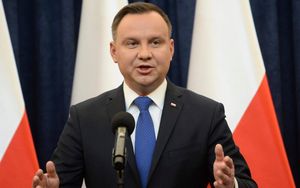Virginia's General Assembly has unveiled ambitious budget proposals aimed at delivering tax relief to citizens, marking a distinct shift from Governor Glenn Youngkin's strategies. Amid rising economic uncertainties, the House of Delegates and the Senate's money committees have proposed one-time tax rebates for all eligible taxpayers, arguing it is both equitable and timely.
On Sunday, both committees stood united, rejecting Youngkin's favored car tax credits and proposing broad-based tax rebates instead. The new budget plans would deliver $200 to individual filers and $400 for those filing jointly, with the rebates expected to be distributed via check or direct deposit as early as mid-October, just weeks before state elections. This effort is seen as not only financial relief but politically significant as it positions lawmakers favorably with constituents.
Senate President Pro Tempore Louise Lucas (D-Portsmouth) emphasized the importance of providing measurable support. “I want to help provide Virginians with more certainty and stability in these uncertain times,” she stated post-vote. Meanwhile, House Appropriations Chairman Luke Torian (D-Prince William) heralded the proposals as beneficial for working families, focusing on utilizing the budget surplus more effectively. “Our responsibility is to use this blessing to shore up our core services and use one-time revenues to provide financial relief,” he articulated.
Critically, the proposed budget plans sidestep Youngkin's December proposal, which sought to implement tax credits for local personal property taxes on vehicles owned by lower-income earners. The governor's plan, which required specific locality tax conditions, faced immediate criticism as it would not have benefited all Virginians swiftly. “We want to provide more relief for a greater number of people,” Lucas remarked, justifying the change.
The proposed amendments also seek to increase the state’s standard deductions but stop short of fully complying with Youngkin's initial suggestions. Specifically, the budget proposes raising deductions by $250 for single taxpayers and $500 for joint filers, efforts which both sides largely agree upon but differ on the extent of implementation.
Acknowledging the looming budget deadline, both the House and Senate finance committees are expected to engage in nonpartisan negotiation processes to finalize their proposed amendments. Del. Terry Austin (R-Botetourt County) noted, “It’s yet to be seen what the final document is going to be. We’ve got much work above us.” Many remain hopeful for compromise and expeditious relief for citizens.
Beyond immediate rebates, the budgets also address long-term needs, including $217.5 million earmarked for bonuses for teachers, state employees, and instructional staff. The plans also include significant increases to health and education funding, addressing concerns raised by constituents over the years.
Experts caution, nonetheless, about the divergent funding philosophies demonstrated between Youngkin's budget and the General Assembly's. While Youngkin's proposals were primarily aimed at tax credits and economic incentives, the Assembly’s emphasis lies heavily on direct financial boosts to citizens. For example, both budgets endorse funding for disaster relief following Hurricane Helene, with $25 million directed toward immediate aid to recovery efforts, drastically lower than the earlier $127 million proposal under Youngkin's initial outline.
Interestingly, both budget proposals maintain some overlap, such as provisions for Medicaid support and funding for Marginalized groups, including enhanced healthcare access for rural communities and increased services for low-income individuals. Despite some disagreement on earmarking additional funds for disaster resilience efforts, cooperation persists as both parties align on the immediate needs of the community.
While there are areas of bipartisan struggle, similar sentiments are echoed around many key issues. Senate Minority Leader Ryan McDougle expressed forward-thinking comments about the collaborative effort, stating, “The amount of money going back to taxpayers — we’re good on the amount of money.”
Budget discussions typically reflect political climates, and the inquiry about the fate of Youngkin's broader policy initiatives appears foregone, as both chambers strongly reject his sanctuary city budget proposal and cuts aimed at private school vouchers. The growing sentiment leans toward ensuring education and community support systems receive significant state funding moving forward.
Looking forward, the biting question rests on whether these initiatives can come together before the final negotiations conclude. Anticipations remain high for legislators to solidify their agreements for the 2025 budget, addressing not only immediate rebates but also long-overdue resources boosting state education, health services, and infrastructural capacity.
The Virginia General Assembly continues to navigate this complex budget process with the hope of presenting their finalized appropriations to Governor Youngkin for his approval. Del. Will Morefield (R-Tazewell County) asserted, “I anticipate there will be changes to the House and Senate proposals, but I do want to stress to hurricane victims … we will adopt a relief package.”
With significant support from easy, immediate rebates versus Youngkin’s deferred relief proposal, many await the outcomes of these upcoming negotiations. State officials will work closely on ensuring all measures sufficiently benefit those they are aiming to support. The budget amendment process remains open, holding promise for adjustments as necessary.
The dialogue surrounding financial policies and budget proposals continues to evolve, capturing the attention of many Virginians who seek clarity and aid amid shifting economic landscapes.



